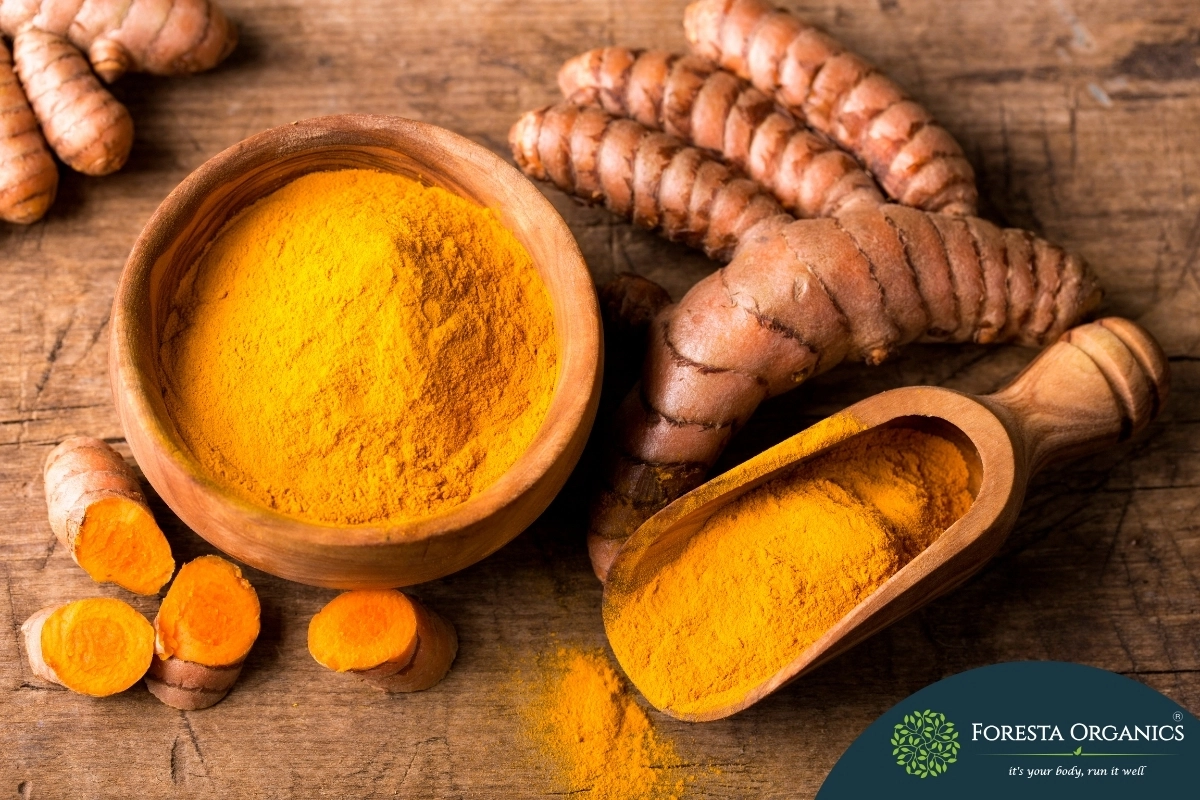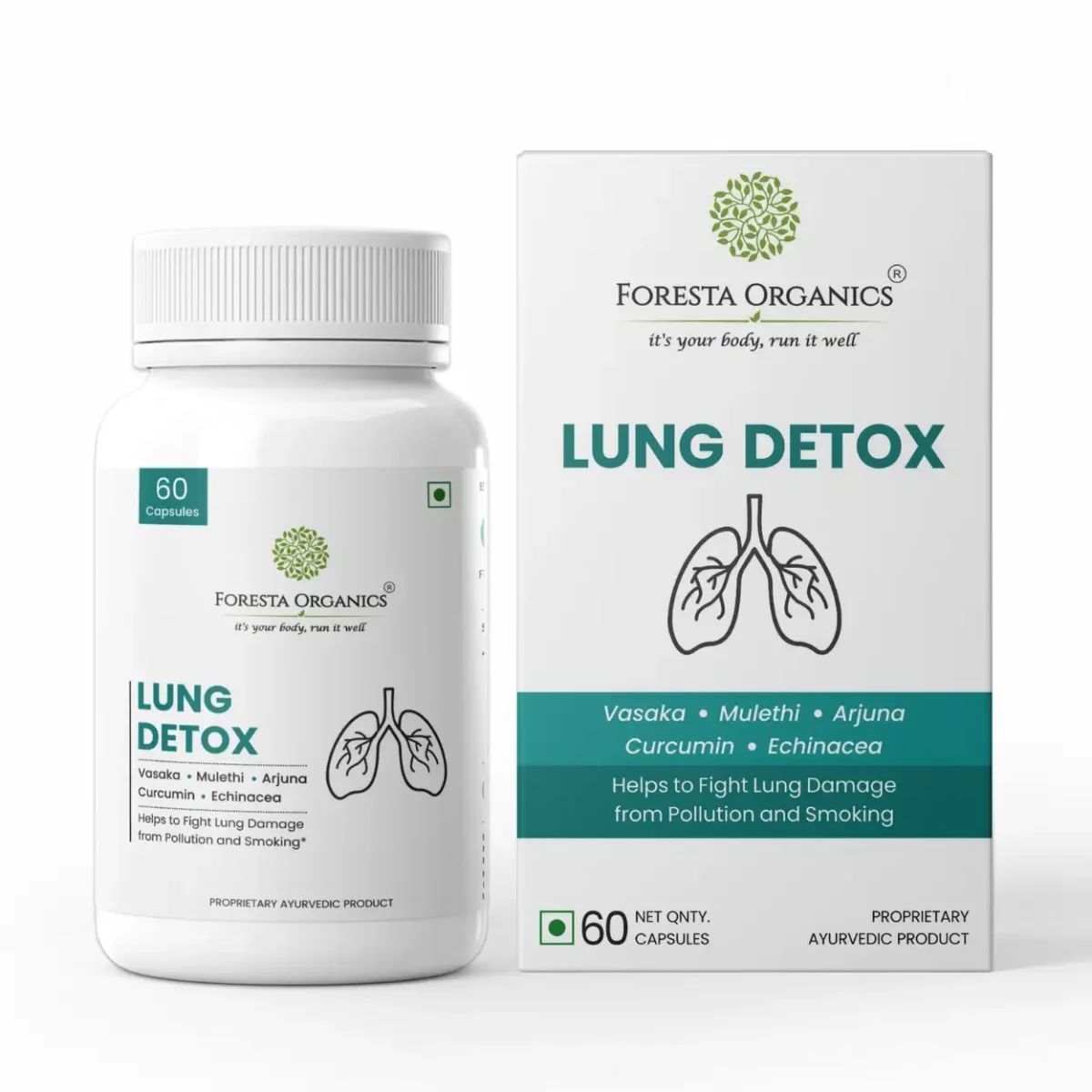
Curcumin is the key active ingredient in Turmeric. It is an antioxidant and anti-inflammatory molecule found in the root of turmeric (Curcuma Longa). Curcumin has the ability to increase the amount of antioxidants that the body produces, which is used to manage pain and inflammation in case of rheumatoid arthritis and osteoarthritis. It helps to prevent the various inflammatory processes in the body occurring in the joints, heart, bones, brain, liver, pancreas, digestive tract, and the lungs and helps in the prevention of diseases affecting these organs.
What are the synonyms of Amla?
It is also known as Curcuma longa, Varvnini, Rajni, Halud, Pitras, Mannal, Pacchamannal, Common Turmeric, Indian Saffron, Haldi, Haridra, Jal, Haldar, Halade, Kanchni.
Benefits of Curcumin
1. Fights Bacterial & Viral Infections
2. Reduces Indigestion
3. Protects Cardiovascular Health
According to ayurveda, high cholesterol is due to an imbalance of Pachak Agni (digestive fire). Impaired digestion at the tissue level produces excess waste products or Ama (toxins). This causes an accumulation of bad cholesterol. Curcumin helps control high cholesterol by reducing Ama because of its Deepan (appetizer) and Pachan (digestive) properties. Curcumin helps lower high cholesterol and prevents blockage in blood vessels.
4. Regulates High cholesterol
According to ayurveda, impaired digestion produces excess waste products or Ama (toxic remains in the body due to improper digestion) at the tissue level. This causes an accumulation of bad cholesterol. Curcumin helps control high cholesterol by reducing Ama because of its Deepan (appetizer) and Pachan (digestive) properties. It also helps to remove the blockage from the blood vessels by eliminating toxins.
5. Manages Rheumatoid Arthritis
Rheumatoid Arthritis also known as Aamavata in Ayurveda is caused by an accumulation of Ama (toxins) in the joints instead of being absorbed when carried to different locations through Vata. Curcumin helps to reduce Ama due to its Ushna (hot) potency. It also has Vata balancing property and gives relief from symptoms like pain and swelling in the joints.
6. Manages Osteoarthritis
According to Ayurveda, osteoarthritis occurs due to an aggravation of Vata dosha and is known as Sandhivata. It causes pain, swelling, and joint immobility. Curcumin gives relief from the symptoms of osteoarthritis due to its Vata balancing property.
FAQs
Curcumin helps in blood pressure management by regulating the activity of angiotensin receptors. Curcumin might relax blood vessels, making blood flow smoothly, thereby lowering blood pressure.
In ayurvedic view, curcumin helps maintain high blood pressure because of its Tikta and Katu Rasa taste and Ushna virya property. These properties maintain smooth blood flow by relaxing the blood vessels.
It’s suggested that Curcumin, a polyphenol (Chemical compound) present in Turmeric, has anticoagulant (substances that reduce the clotting time) properties. It prevents the formation of blood clots.
Although Curcumin is safe to consume in food amounts, it is advisable to consult a doctor before taking Curcumin supplements if you have gallstones. This is because Curcumin might cause intense pain in the abdominal region in gallbladder stones.
In the case of gallbladder stones, a high dosage of its supplements should be avoided due to its Ushna (hot) nature, although Curcumin is safe to be taken in food amounts.
An increase in weight is due to unhealthy food habits and lifestyle, which leads to a weak digestive fire. This increases the accumulation of Ama, causing an imbalance in Meda dhatu, thus resulting in obesity. Curcumin is useful to control obesity as it helps to improve metabolism and reduce Ama. This is due to its Deepan (appetizer) and Pachan (digestive) properties. It balances Meda Dhatu and thus reduces obesity.
Premenstrual Syndrome (PMS) refers to a cycle of physical, emotional, and behavioral symptoms. It is a psychophysiological stress-induced disorder resulting in an imbalanced nervous system. Curcumin has anti-inflammatory properties that work on the nervous system and helps reduce stress. This helps ease the symptoms of PMS.
According to Ayurveda, an impaired Vata and Pitta circulate in different body channels, causing various PMS physical symptoms. Curcumin helps to reduce the symptoms of PMS because of its Vata balancing property.
Yes, Curcumin is beneficial in giving relief from cough, especially in asthma. The volatile oil is useful in removing sputum, relieving cough, and preventing asthma.
Curcumin, the active constituent present in Turmeric, lightens dark spots if used regularly. Curcumin also has excellent antioxidant properties, preventing cell damage, and helps repair skin.
Curcumin has a property of Ropan and Rasayana. Because of these properties, Curcumin helps to reduce dark spots and gives clear skin.
- Omosa LK, Midiwo JO, Kuete V.Curcuma longa.Medicinal Spices and Vegetables from Africa Therapeutic Potential Against Metabolic, Inflammatory, Infectious and Systemic Diseases.Academic Press.2017.
- Prasad S, Aggarwal BB.Turmeric, the golden spice from traditional medicine to modern medicine.Benzie IFF, Wachtel-Galor S ed.Herbal Medicine: Biomolecular and Clinical Aspects.2nd edition.CRC Press/Taylor & Francis;2011.
- Biswas SK, McClure D, Jimenez LA, et al.Curcumin induces glutathione biosynthesis and inhibits NF-kappaB activation and interleukin-8 release in alveolar epithelial cells: Mechanism of free radical scavenging activity.Antioxid Redox Signal.2005;7(1-2):32-41.
- WebMD.Turmeric: Uses, Side-effects, Interactions, Dosage[Internet].Atlanta.2016.
- Kim HJ, Yoo HS, Kim JC, et al.Antiviral effect of Curcuma longa Linn extract against hepatitis B virus replication.J Ethnopharmacol. 2009;124(2):189-96.
- Chen MH, Lee MY, Chuang JJ.Curcumin inhibits HCV replication by induction of heme oxygenase-1 and suppression of AKT.Int J Mol Med. 2012;30(5):1021-8.
- Berk M, Williams LJ, Jacka FN, et al.So depression is an inflammatory disease, but where does the inflammation come from?BMC Med.2013;11:200.
- Samanta L, Panigrahi J, Bhanja S, et al.Effect of Turmeric and its active principle Curcumin on T3-induced oxidative stress and hyperplasia in rat kidney: A comparison.Indian J Clin Biochem.2010;25(4):393–397.
- Moohammadaree A, Changtam C, Wicha P, et al.Mechanisms of vasorelaxation induced by hexahydrocurcuminin isolated rat thoracic aorta.Phytother Res.2015;29(11):1806-13.
- Goto H, Sasaki Y, Fushimi H, et al.Effect of curcuma herbs on vasomotion and hemorheology in spontaneously hypertensive rat.Am J Chin Med.2005;33(3):449-57.
- Srivastava KC, Bordia A, Verma SK.Curcumin, a major component of food spice Turmeric (Curcuma longa) inhibits aggregation and alters eicosanoid metabolism in human blood platelets.Prostaglandins Leukot Essent Fatty Acids.1995;52(4):223-227.
- Li W, Wu M, Tang L, et al.Novel curcumin analogue 14p protects against myocardial ischemia reperfusion injury through Nrf2-activating anti-oxidative activity.Toxicol Appl Pharmacol.2015;282(2):175-83.
- Peschel D, Koerting R, Nass N.Curcumin induces changes in expression of genes involved in cholesterol homeostasis.J Nutr.Biochem.2007;18(2):113-119.
- Pungcharoenkul K, Thongnopnua P.Effect of different curcuminoid supplement dosages on total in vivo antioxidant capacity and cholesterol levels of healthy human subjects.Phytother Res.2011;25(11):1721-1726.
- Kowluru RA, Kanwar M.Effects of Curcumin on retinal oxidative stress and inflammation in diabetes.Nutr Metab (Lond).2007;4:8.
- Chiu J, Khan ZA, Farhangkhoee H, et al.Curcumin prevents diabetes-associated abnormalities in the kidneys by inhibiting p300 and nuclear factor-kappaB.Nutrition 2009;25(9):964-972.
- Chuengsamarn S, Rattanamongkolgul S, Luechapudiporn R, et al.Curcumin extract for prevention of type 2 diabetes.Diabetes Care 2012;35(11):2121-2127.
- Meng B, Li J, Cao H.Antioxidant and anti-inflammatory activities of Curcumin on diabetes mellitus and its complications.Curr Pharm Des.2013;19(11):2101-13.
- Ndisang JF, Vannacci A, Rastog S.Insulin resistance, type 1 and type 2 diabetes, and related complications.J Diabetes Res.2017.
- Rasyid A, Rahman AR, Jaalam K, Lelo A.Effect of different curcumin dosages on human gall bladder.Asia Pac J Clin Nutr.2002;11(4):314-8.
- Kim DC, Ku SK, Bae JS.Anticoagulant activities of Curcumin and its derivative.BMB Rep.2012;45(4):221-226.
- Shin SK, Ha TY, McGregor RA, et al.Long‐term curcumin administration protects against atherosclerosis via hepatic regulation of lipoprotein cholesterol metabolism.Mol Nutr Food Res.2011;55(12):1829-40.
- Daily JW, Yang M, Park S.Efficacy of Turmeric extracts and Curcumin for alleviating the symptoms of joint arthritis: A systematic review and meta-analysis of randomized clinical trials.J Med Food. 2016;19(8):717–729.
- Yadav SK, Sah AK, Jha RK.Turmeric (Curcumin) remedies gastroprotective action.Pharmacogn Rev. 2013;7(13):42–46.
- Mishra S, Palanivelu K.The effect of Curcumin (Turmeric) on Alzheimer’s disease: An overview.Ann Indian Acad Neurol.2008;11(1):13–19.
- Anand P, Sundaram C, Jhurani S, et al.Curcumin and cancer: An \”old-age\” disease with an \”age-old\” solution.Cancer Lett.2008;267(1):133-64.
- Chainani-Wu N.Safety and anti-inflammatory activity of Curcumin: A component of Turmeric (Curcuma longa).J Altern Complement Med.2003;9(1):161-8.
- Kulkarni SK, Dhir A.An overview of Curcumin in neurological disorders.Indian J Pharm Sci. 2010;72(2):149–154.
- Park C, Moon DO, Choi IW.Curcumin induces apoptosis and inhibits prostaglandin E2 production in synovial fibroblasts of patients with rheumatoid arthritis.Int J Mol Med.2007:365-372.
- Ramadan G, Al-Kahtani MA, El-Sayed WM. Anti-inflammatory and antioxidant properties of Curcuma longa (Turmeric) versus Zingiber officinale (ginger) rhizomes in rat adjuvant-induced arthritis.Inflammation.2011;34(4):291-301.
- Balkrishnan A.Haldi.Ayurved Jadi Buti Rehsya. Danik Bhaskar.2017.
- Bradford PG.Curcumin and obesity.Biofactors. 2013 Jan-Feb;39(1):78-87.
- MV Rode, P Kamble, M.S Phatak, et al. Effect of premenstrual stress on autonomic function.Ann Neurosci. 2010 Jul; 17(3): 131–133.
This information is meant to supplement, not replace advice from your doctor or healthcare provider and is not meant to cover all possible uses, precautions, interactions or adverse effects. This information may not fit your specific health circumstances. Never delay or disregard seeking professional medical advice from your doctor or other qualified healthcare provider because of something you have read on Foresta Organics. You should always speak with your doctor or health care professional before you start, stop, or change any prescribed part of your healthcare plan or treatment and to determine what course of therapy is right for you.
 Body Detox
Body Detox Performance
Performance Mood & Stress
Mood & Stress Metabolism
Metabolism Bone & Joint
Bone & Joint Energy & Immunity
Energy & Immunity Cholesterol
Cholesterol
